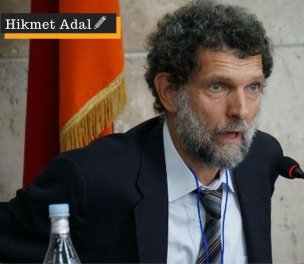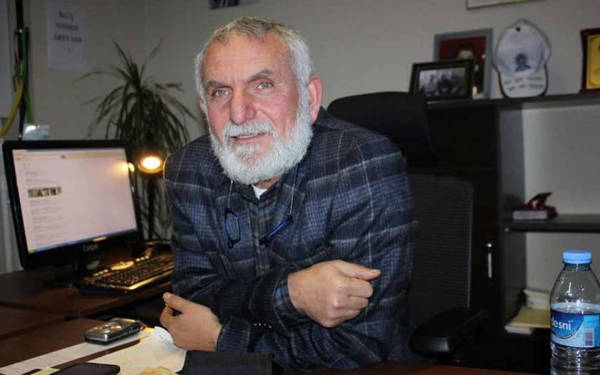Click to read the article in Turkish / Kurdish
Arrested shortly after a ruling of acquittal and release in Gezi trial and now charged with "attempting to overthrow the Constitutional order" and "obtaining confidential information of the state for political or military espionage," rights defender and businessperson Osman Kavala had his first hearing at the İstanbul 36th High Criminal Court today (December 18).
Announcing its interim judjement after the recess, the court board has ruled that the imprisonment of Osman Kavala shall continue. The next hearing of the case will be held on February 5, 2021.
Kavala attended the hearing via videconference
Jailed for 1,144 days, Osman Kavala attended today's hearing from Silivri Prison at the outskirts of İstanbul via the Audio and Visual Information System (SEGBİS) while his attorneys Köksal Bayraktar, Tolga Aytöre and Deha Boduroğlu were present in the courtroom.
Among the ones following the hearing were also representatives from the Consulates General of Sweden, Germany, Denmark and the US in İstanbul.
While journalists also covered the hearing, there was not enough space and they had to watch the hearing on foot without being able to keep their social distance amid the COVID-19 pandemic.
After the identification of Kavala, the presiding judge summarized the indictment against Kavala and Henri Barkey. Following this summary, Osman Kavala presented his statement of defense. He said that none of the charges brought against him in the indictment were based on any factual ground, evidence or the examination of a concrete act.
The defense statement of Kavala was briefly as follows:
'Allegations in stark contrast to my worldview'
"None of the charges in this indictment are based on any facts, evidence or objective evaluation of a concrete criminal act.
"These are allegations that are in stark contrast to my worldview, ethical values and the goals of the projects carried out by the civil society organizations under my supervision. In the absence of concrete evidence, each allegation is presented as a justification to another, and the accusations were intertwined to create the impression that I a m guilty.
"At the beginning of the indictment, it is stated that in order to understand the charges of political and military espionage that brought against me, there is a need for describing what occurred during the Gezi events, and the excerpts from the Gezi indictment, which had been prepared by the same prosecutor, are presented as objective reality.
"In the indictment, the allegation that I had been in close contact with Henri Barkey is used as the basis of the charges concerning both my participation in the organization of the 15 July coup attempt and my involvement in acts of espionage. There is no evidence shown that I had passed on any information or document to Henri Barkey and no evidence showing that I had been in touch with him.
"The fictional narrative around my involvement in civil society initiatives as a way to conduct espionage operations has also no basis in reality. Instead of presenting any evidence, the indictment goes at length about conspiracy theories around espionage and arrived at conclusions about Anadolu Kultur through assumptions and speculations without any factual basis.
"In the context of the abstract analyses of the Prosecution around civil society's involvement in espionage activities, it is argued that after the Second World War, foreign countries actively started to use civil society organizations as a means of gathering intelligence. The prosecution has intentionally confounded the present activities of civil society organizations which serve to contribute to democracy with the political and ideological activities undertaken during the Cold War Era.
"The allegation that Anadolu Kultur s intentions are to bring enmity among the citizens and weaken their ties to the state constitutes a vicious slander. In order for citizens who are part of et hnic or religious minorities to have strong ties to the state, they should feel and think of themselves as equal members of the society. I believe that their being able to freely express themselves and sharing their experiences with other members of the society is a necessary condition for equality.
"During the past 20 years, Anadolu Kultur activities carried out in different cities have never been suspected of having anything to do with espionage by the municipal officials, Security Forces and MIT (National Intelligence Organization). The fact that the Prosecution alleges that these activities were espionage- related, also means the underestimation of the operations and the surveillance capacity of the institutions of the Republic of Turkey.
"The fact that I have been detained for years based on such bizarre allegations, despite the violation decision of the European Court of Human Rights, the acquittal decision of the local court and the two releases, is not just a simple violation of rights; it has become an ongoing torment.
"I hope this indictment, which includes the most extreme examples of unfounded, unsubstantiated and illogical charges leading to our citizens' deprivation of their freedom, will be the last one of its kind."
Prosecutor demanded continuation of arrest
After the defense statement of Osman Kavala, the hearing continued with witness statements and the defense statements of attorneys. Kavala's attorneys requested his release. Hearing the requests, the court board recessed the hearing for 15 minutes.
Following the recess, the prosecutor announced his opinion as to the requests for release and demanded that Kavala remain behind bars. A 15-minute recess was given for the interim judgement.
Announcing its interim judjement after the recess, the court board has ruled that the imprisonment of Osman Kavala shall continue. The next hearing of the case will be held on February 5, 2021. (HA/SD)






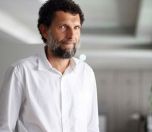
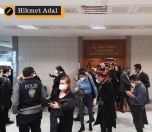

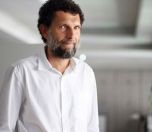
-132.jpg)
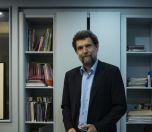
-132.jpg)
-132.jpg)
